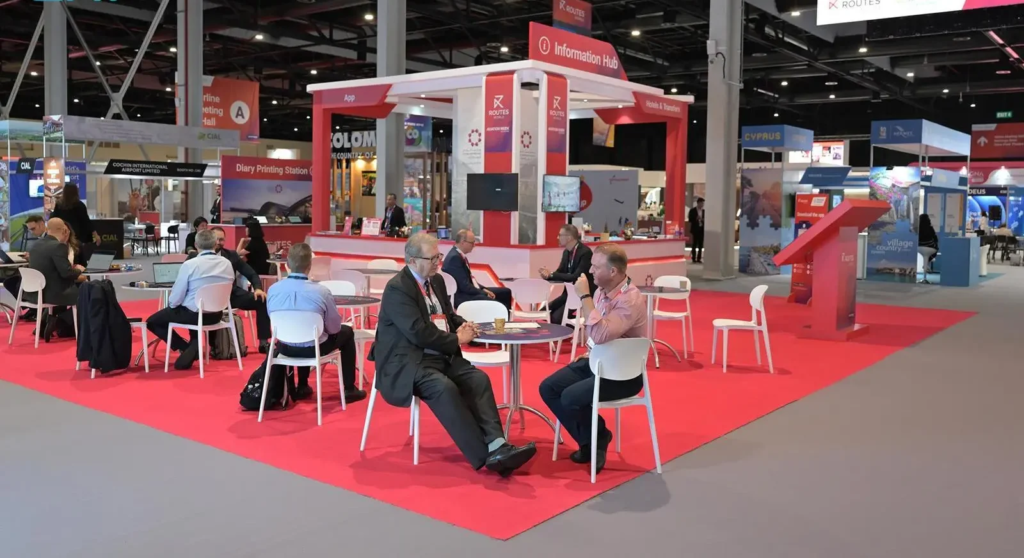In a major step toward expanding international food-sector collaboration, a June trade gathering in Manama’s Diplomatic Area successfully brought together Bahraini and Moroccan businesses to explore partnership opportunities. The event served as a vibrant hub of exchange, fostering bilateral discussions, tasting events, and business match ups that are set to deepen ties between the two nations.
Organized by the Bahrain Chamber of Commerce and Industry (BCCI) in collaboration with Morocco’s leading export and trade authorities, the trade gathering highlighted the mutual goal of growing regional food markets, boosting exports, and creating sustainable supply chains.
Held in the heart of Manama’s Diplomatic Area known for its elite business setting the June trade gathering in Manama’s Diplomatic Area hosted over 50 delegates from both Bahrain and Morocco. Attendees included food manufacturers, wholesalers, agricultural investors, retail chain representatives, and logistics providers.

A Vision for Food Security and Trade Expansion
With global food supply challenges affecting prices and accessibility, this gathering focused on strategic partnerships to ensure food security and economic stability across the Gulf and North Africa.
The June trade gathering in Manama’s Diplomatic Area opened with keynote remarks from Bahraini officials who emphasized the Kingdom’s growing focus on agribusiness, food-tech, and import-export diversification. Morocco, known for its robust agriculture, olive oil, seafood, and fruit exports, showcased its ability to support Bahrain’s food import needs with high-quality and competitively priced products.
Representatives from Morocco’s Ministry of Agriculture and the Moroccan Food Export Agency presented figures showing a 20% year-on-year rise in food exports to the GCC, a trend they aim to continue.
Key Themes Covered During the Event
- Food Import-Export Strategies
Bahraini distributors explored Morocco’s seasonal produce cycles, particularly focusing on citrus fruits, olive oil, and frozen seafood. Talks centred around creating long-term supply agreements to stabilise costs and improve freshness in Bahrain’s retail markets. - Halal Certification & Quality Standards
Both sides discussed mutual recognition of food quality and halal certification processes, a major concern for Gulf consumers. Moroccan exporters were briefed on Bahrain’s strict quality controls and labeling requirements. - Investment and Technology Sharing
Startups and SMEs from both countries showcased new food preservation technologies, smart packaging solutions, and sustainable farming practices. Delegates proposed several pilot projects to trial Moroccan innovations in Bahrain’s food distribution networks. - Culinary Exchange and Culture
A unique highlight of the June trade gathering in Manama’s Diplomatic Area was the culinary tasting session, where Bahraini chefs tried traditional Moroccan dishes and ingredients. It sparked conversations about fusion cuisine and importing ethnic products for Bahrain’s diverse population.
Positive Outcomes From the June Trade Gathering
The event generated multiple Memoranda of Understanding (MoUs) between Bahraini food retailers and Moroccan suppliers. According to event organisers, at least 10 commercial agreements were signed during the two-day gathering.
A spokesperson for the Bahrain Chamber stated, “This trade platform has created immediate results. The new deals will see Moroccan products in Bahraini supermarkets within the next two months, and we’re planning follow-up visits for deeper cooperation.”
Moroccan businesses expressed optimism about Bahrain acting as a gateway to wider Gulf markets, citing its efficient logistics and favourable tax environment. Likewise, Bahraini firms see Moroccan suppliers as reliable partners who can fulfill product gaps in a market that relies heavily on imports.

Future Plans Announced
Based on the success of the June trade gathering in Manama’s Diplomatic Area, both nations are planning more structured initiatives. These include:
- A Bahrain-Morocco Agribusiness Council to facilitate regular dialogue
- Annual food trade expos hosted alternately in Manama and Casablanca
- Cross-training programs for food safety inspectors and quality assurance teams
- Digital platforms to match suppliers and buyers year-round
Organizers also revealed that a second trade gathering is scheduled for November, where more sectors such as agriculture machinery and food-tech will be included.
Regional Impact and Strategic Timing
The timing of the June trade gathering in Manama’s Diplomatic Area was considered ideal, as both Bahrain and Morocco are looking to diversify trade partnerships outside Europe and Asia. Gulf economies are actively exploring African suppliers, and Morocco offers a politically stable and logistically accessible entry point.
Additionally, with rising demand for premium and healthy food options in Bahrain, Moroccan products such as argan oil, dried fruits, couscous, and artisan cheeses are poised to attract interest.
Conclusion
The June trade gathering in Manama’s Diplomatic Area has set a powerful precedent for regional food collaboration. As the world navigates economic shifts and supply chain challenges, such bilateral efforts are crucial in building sustainable and diversified food systems.
By fostering trust and practical agreements between Moroccan exporters and Bahraini importers, this initiative is not only improving market access but also enriching the culinary and cultural landscape of both countries.
With positive feedback from attendees and actionable results already visible, the gathering stands out as a model for how trade diplomacy can work on the ground bringing businesses together, opening new markets, and feeding both economies and people.
Do follow Gulf Magazine on Instagram
Also Read – Manama Diverse Gastronomic Scene Booms With 7 Exciting Events



